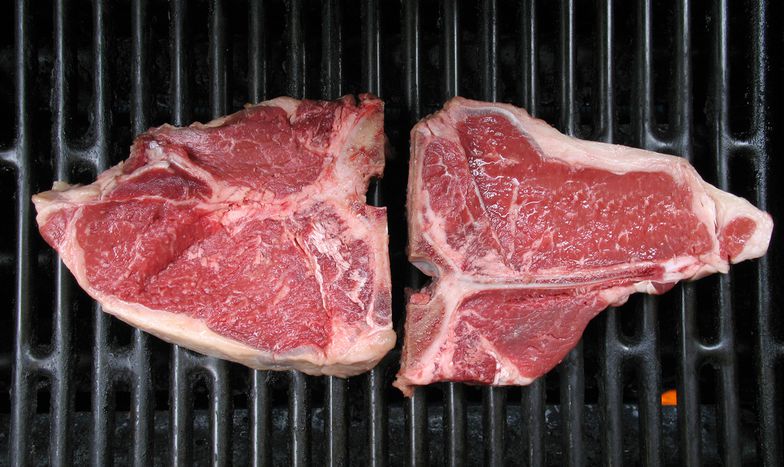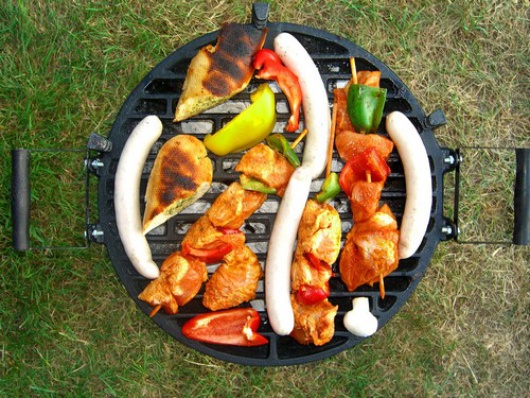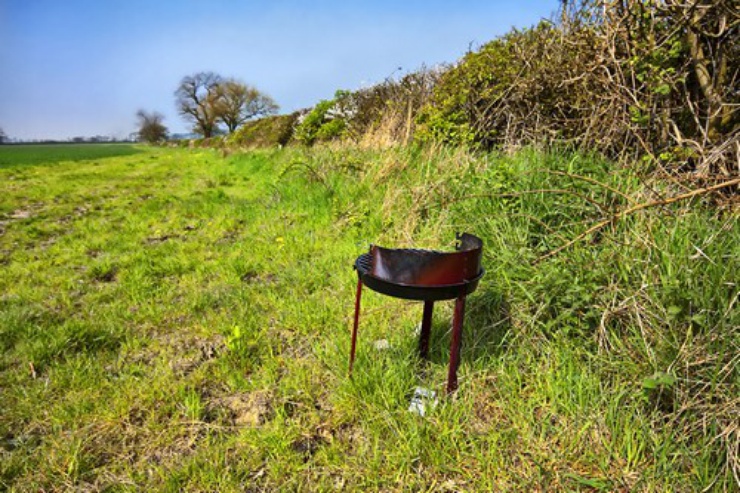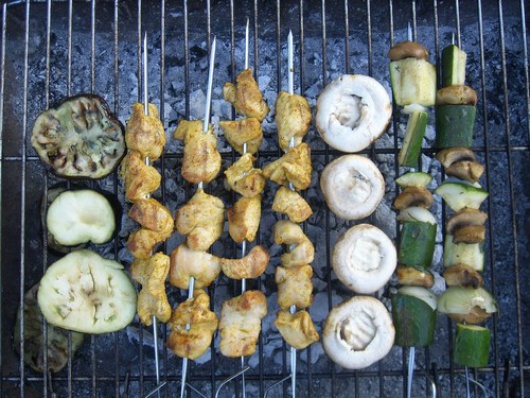
Not just meat goes on barbecues
Published on
Translation by:
Lydia BigosIn the communist era in central and eastern Europe people typically lit small bonfires as they didn’t have access to ‘specialist BBQ equipment’. Now the fashion is to use a 'BBQ' instead of sticking a sausage on a stick and holding it over the fire
The tradition emphasises the word barabicu (from American 'BBQ'), used in the Caribbean and meaning 'sacred place for a fire'. This tradition of cooking in an open fire is not new.  We tend to use both fish (in countries by the sea) and meat, a lot of meat on the BBQ. Maybe it is good that we do this, as it is a good way to eliminate fat from our diet. You don’t have to do anything more than stick a piece of beef on the BBQ, season it with some salt, pepper and a little bit of spice for that extra kick. An international debate has started regarding how long one should leave the food on the BBQ for. In Germany, you would generally cook the meat for around four minutes on each side, whereas in France you would only cook it for half of that time. A problem arises regarding these perspectives on cooking times with the Hungarian style kebab - it is comprised of veal, beef, and pork all mixed with yellow pepper and onion.
We tend to use both fish (in countries by the sea) and meat, a lot of meat on the BBQ. Maybe it is good that we do this, as it is a good way to eliminate fat from our diet. You don’t have to do anything more than stick a piece of beef on the BBQ, season it with some salt, pepper and a little bit of spice for that extra kick. An international debate has started regarding how long one should leave the food on the BBQ for. In Germany, you would generally cook the meat for around four minutes on each side, whereas in France you would only cook it for half of that time. A problem arises regarding these perspectives on cooking times with the Hungarian style kebab - it is comprised of veal, beef, and pork all mixed with yellow pepper and onion.
Unfortunately, a superb beef steak, prawns in a sauce or white German sausage do not often come with a vegetable option. Baked potatoes, however healthy, are not enough. After communism was ended in Poland, potatoes became the only delicacy that could be cooked over the fire (due to the lack of availability for sausages), but meat is making its comeback to the BBQ culture. In the meantime, it is good practice to experiment and play around with the BBQ. For example, you could wrap Camembert, Greek feta or Polish ‘Oscypek’ (smoked cheese made from sheep’s milk) in some tin foil, or just simply serve it with cranberries and roasted vegetables. You don’t need to be too adventurous and barbecue octopus to taste a little of the Mediterranean; it's enough to take a Spanish tortilla or a Greek pita and add a little of the BBQ'ed vegetables to taste some of the world's delights.
Healthy tips for novice BBQers
The art of BBQ-ing appears to be simple, however problems arise in the details. Avoid using any type of wood of a coniferous nature, as it emits a very intense smell. Use bark shavings on top of your coal, but make sure you take the shavings from a deciduous tree, like oak or ash! Secondly, while BBQ meat is a lot healthier than fried meat, salty meats are not ideal for the BBQ as they produce a chemical called nitrosamine, which is harmful to the health. Consequentially, some American researchers have established that BBQ-ing marinated meat allows for the elimination of cancerous substances.

How, where and when?
Not everyone likes the strong smell of a BBQ, therefore it is probably best to have your BBQ in your own garden. Contrary to most peoples opinions it is not mandatory to just have meat on your BBQ. You could try apples with a baked skin or bananas in a citric juice with brown sugar and cinnamon - now there's an appetiser. For the main, try roasted aubergine roulade. Get those BBQs out, while we still have good weather and warm evenings ahead of us.
How to make aubergine roulade
Ingredients:
 2 Aubergines, 5 teaspoons of flat leaf parsley, 4 cloves of garlic, olive oil, 100gr of parmesan cheese (or sheep’s cheese), salt and pepper
2 Aubergines, 5 teaspoons of flat leaf parsley, 4 cloves of garlic, olive oil, 100gr of parmesan cheese (or sheep’s cheese), salt and pepper
Preparation guidelines:
After salting the slices of aubergine (cut them so they are about 0.5cm think), leave them to one side for around half and then put them on the BBQ until they soften
Cover with the mixture of parmesan, parsley, garlic and olive oil
After the seasoning, roll up the slices of aubergine and stick a toothpick through it to hold it in place and then put it on the BBQ to cook
Wait five minutes or so and then drown your taste buds in delight
Translated from Czas na barbecue!



